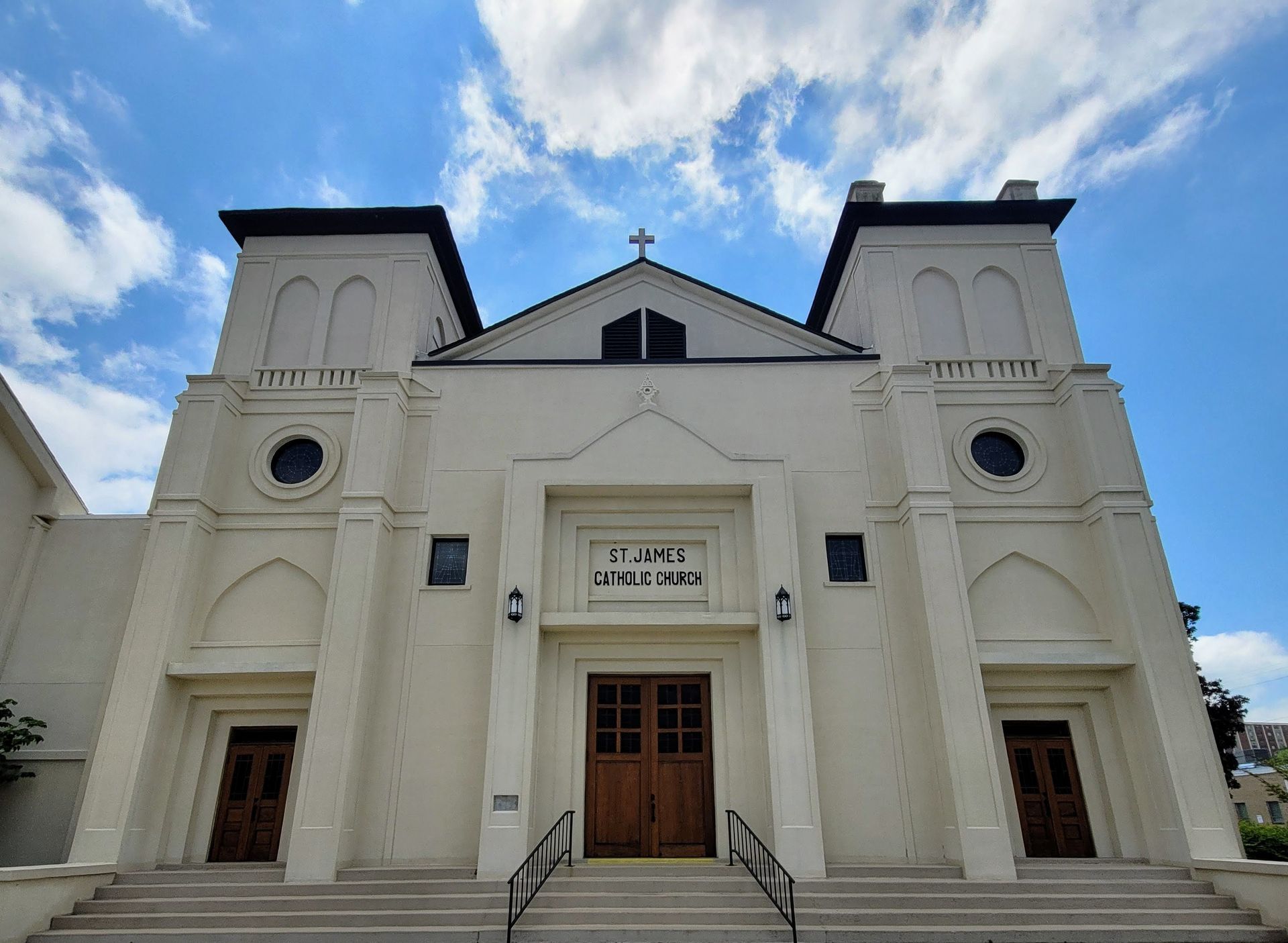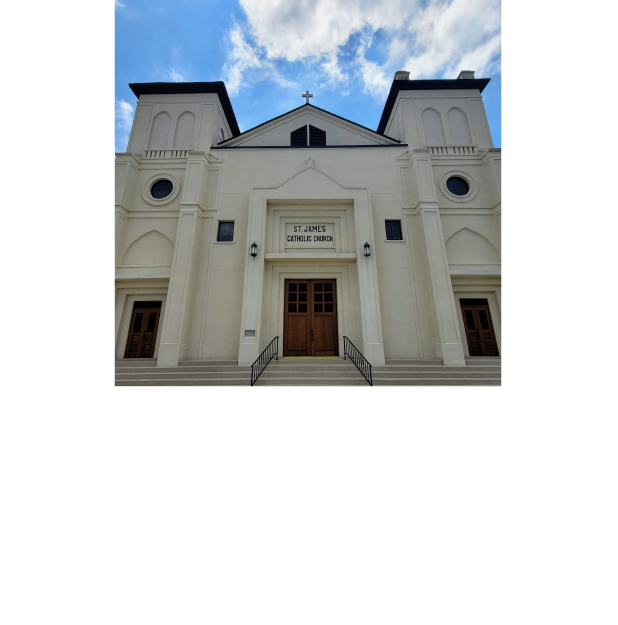Why be Catholic
Why Catholicism?
So you may be asking yourself, "WHY SHOULD I WANT TO BE CATHOLIC?"
Good question.
Here is an explanation from Matthew Nelson, an apologist from The Word On Fire Institute.
1. CATHOLICISM IS REASONABLE.
There are many aspects of Catholic belief that cannot be immediately reached by deductive reasoning: that God is a Trinity, for example. But the idea of one God in three co-equal and co-eternal persons is not a logical contradiction either; it just requires fine distinctions to be made and understood—namely, the difference between person and nature .
But some religious beliefs can be reached via deductive logic. The Church from her foundation has always recognized that there are footprints of God in the natural world. St. Paul wrote in his letter to the Romans that God’s existence can be known through the observation of created things (see Rom 1:20). Science combined with reason is a powerful combination for the believer.
Various arguments that address the question “Why is there something rather than nothing?” demonstrate how religious truths can indeed be reached logically (like God’s existence, for example). Since reason tells us that things do not pop into existence without a cause, and scientific investigation (as well as philosophical reasoning) makes a good case for the beginning of the universe, it can thus be concluded that the universe has an eternal, all-powerful cause unbound by space and time.
And of course there are the cosmological arguments of St. Thomas Aquinas who observed (building on the arguments of the pagan Aristotle), for example, that an infinite regress of caused causes leads to logical problems; and thus there must be an infinitely perfect being—an Uncaused Cause—behind it all to get the domino effect going in the first place (as well as to sustain it here and now). Indeed it was such arguments as these that played a huge part in moving perhaps the 20th century’s most renowned atheist, Antony Flew, to belief in a Creator.
2. CATHOLICISM IS HISTORICAL.
C.S. Lewis in his essay “God in the Dock” remarked that many of the unbelievers he encountered had no trouble believing in prehistoric man; but there was a paradox:
“I had supposed that if my hearers disbelieved the Gospels, they would do so because the Gospels recorded miracles. But my impression is that they disbelieved them simply because they dealt with events that happened a long time ago.”
Nonetheless, that Jesus existed is confirmed by nearly every New Testament historian on the planet. Due to a plenitude of early sources, and the multiple attestations of Christian, Jewish and secular sources, New Testament historians (particularly the skeptical ones) are interested in much bigger questions such as: “What did the Church persecutor Paul (not to mention the apostles) see that convinced him Jesus had resurrected from the dead?” and “What explains the rise of early Christianity?”
Indeed the non-Christian historical sources are valuable and interesting, but that’s not where the story ends. We must also ask: what was early Christianity like? And for that, one must go to the early Church Fathers and ecclesiastical writers of the first seven or so centuries.
What do we find in these early Christian writings? Catholicism. The real presence of Christ in the Eucharist, baptismal regeneration, the baptism of infants, and the authority of the bishops are not disputed; they are staples of the faith. At the beginning of the first century, Ignatius of Antioch calls the Church of Christ “catholic”. We find the veneration of saintly relics in The Martyrdom Of Polycarp. Irenaeus records the succession of the first four popes of Rome. Tertullian describes how Christians make the sign of the cross on their foreheads. C.S. Lewis wrote that “a young atheist cannot be too careful of his reading”. The same would also appear true for the Protestant.
Indeed, as Blessed John Cardinal Henry Newman learned and thus noted, “to be steeped in history is to cease to be Protestant.” It’s not that Protestants aren’t our brothers and sisters in Christ—they are. It’s just that they’re separated from the fullness of the Church and her wisdom and we Catholics want them to come home. Our arms are ever open and waiting.
3. CATHOLICISM IS BIBLICAL.
We’ve talked about historical sources that support the claims and beliefs of Catholicism; but we haven’t talked about the primary source, both theologically and historically: the written Word of God.
One of the shocking things I realized when I re-entered the Catholic Church was how plainly biblical her teachings were. We believe that we are saved by grace because St. Paul, under the inspiration of the Holy Spirit, says so (Eph 2:8). But we also believe that we are saved by faith—but not “by faith alone” because that’s what the Bible says (James 2:24). We believe true faith works in love and thus we must “work out our salvation with fear and trembling” (Gal 5:6; Phil 2:12). We believe that the deposit of faith has been passed down through the Sacred Writings and also by sacred oral tradition because that’s what Paul taught (1 Thess 2:13; 2 Thess 2:15; 1 Cor 11:2). We believe that priests can forgive our sins in the presence of Christ because Jesus said to the apostles “whose sins you forgive are forgiven them” (John 20:21-23). But we also believe that the grace required for our salvation comes freely through the sacraments, beginning with baptism, because the New Testament says things like “Baptism…now saves you” (1 Pet 3:21).
We also believe in the authority of the Church as the teacher and interpreter of the faith. Jesus makes the final authority of the Church clear in Matthew 18 and, furthermore, St. Paul calls the Church ” the pillar and bulwark of truth” (1 Tim 3:15). We recognize Peter and his successors as the leader and Prime Minister of the Church because, well, it is a sort of sociological necessity; even for the Church of God. Every institution on earth needs a “boss” because people disagree on things. But also, Jesus changed Simon’s name to Peter (signifying a new mission like when God changed Abram’s name to Abraham) and then gave him “the keys” and the power to bind and loose (Matt 16:18-20; Is 22). There can be no mistaking it: Jesus gave Peter authority over the Church, and his successors (see Acts 1:20) would inherit that authority.
Finally, we believe in the Eucharist because Jesus said “unless you eat the flesh of the Son of Man and drink his blood you have no life in you” and “my flesh is food indeed.” Then the night before he died he showed the apostles how this was to be done by revealing his flesh and blood in the form of bread and wine. “Do this,” said Jesus. And to this day the Catholic Church continues to do this in memory of Christ making present today the once for all sacrifice of Jesus on Calvary. The Eucharistic sacrifice is a re-presentation and this is the source and summit of the Christian life.
That is why a Eucharistic Church is the final resting place for every human. It is the one place where spiritual and bodily communion is possible with God in this life: and from that one great meeting with God flows all kinds of extraordinary possibilities. That is ultimately why I am Catholic. Because of the Eucharist. I believe it is found in the Communion of the Catholic Church—and only there. The Catholic Church, I believe, is where man finds everything he is looking for.
IN CONCLUSION
So there we have three important reasons to be CATHOLIC: It is reasonable, historically shown to be the church Christ founded, and is biblically based in its authority.
But the only way for one to truly come to these conclusion -- and therefore come to the church -- is to study the church, study Christianity, study its history from Christ until today. Thenthe truth will present itself in a way which is undeniable.
The Holy Spirit guides us to the church.




